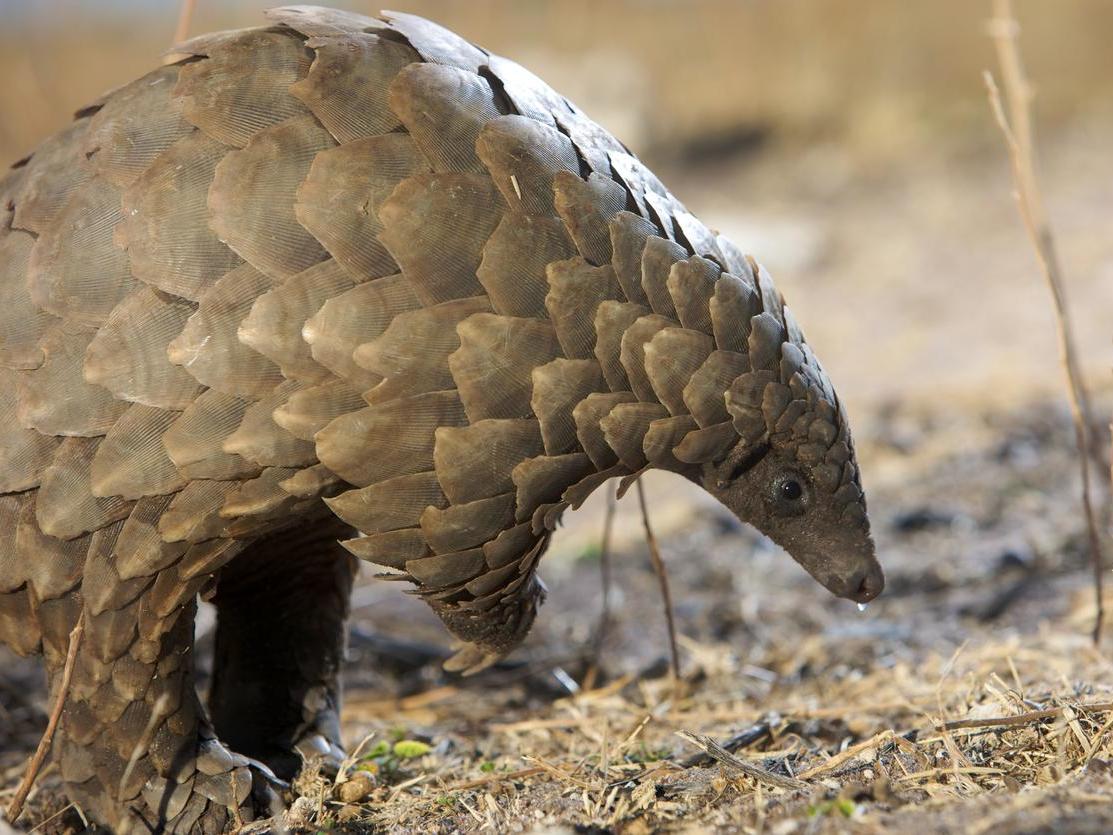Stop The Wildlife Trade: China removes pangolin scales from list of traditional medicines
Some scientists believe pangolins incubate the Covid-19 virus

Your support helps us to tell the story
From reproductive rights to climate change to Big Tech, The Independent is on the ground when the story is developing. Whether it's investigating the financials of Elon Musk's pro-Trump PAC or producing our latest documentary, 'The A Word', which shines a light on the American women fighting for reproductive rights, we know how important it is to parse out the facts from the messaging.
At such a critical moment in US history, we need reporters on the ground. Your donation allows us to keep sending journalists to speak to both sides of the story.
The Independent is trusted by Americans across the entire political spectrum. And unlike many other quality news outlets, we choose not to lock Americans out of our reporting and analysis with paywalls. We believe quality journalism should be available to everyone, paid for by those who can afford it.
Your support makes all the difference.China has removed pangolin parts from its list of traditional medicines, state-backed media reported, in a move campaigners say is a vital step in helping to protect the endangered animal.
Pangolins – the world’s most trafficked mammal – are highly sought after in China and Vietnam for their meat which is considered a delicacy, while their scales are used in traditional medicine and folk remedies.
Similar in size to domestic cats and the only mammal covered in scales, all eight pangolin species are protected under international laws but there remains a growing illegal trade of the animals.
This week health authorities omitted pangolin scales from China’s latest Pharmacopoeia, an approved list of traditional drugs and remedies due to “wild resources exhaustion”, according to a report in the Health Times.
WildAid CEO Peter Knights said the move was “the greatest single action that could have been taken to save pangolins from extinction.”
“The increased protection coupled with the swift and comprehensive closure of live wildlife markets and removal of many wild species from the list of what can be consumed as food in China were already very positive steps to saving the pangolin worldwide and reducing the possibility of them ever being a vector for disease.
“And now this announcement, effectively the closure of legal sales of pangolin scales, shutting the last major loophole in pangolin protection efforts,” he added.
People for the Ethical Treatment of Animals (PETA) welcomed China’s decision, but urged action to stop the sale of pangolins on the black market.
“PETA gives a nod to China for taking an important step to combat the demand for pangolin scales,” director Elisa Allen told The Independent.
“However, as long as it remains desirable and profitable for endangered animals’ body parts to be sold for medicine, wildlife will continue to be killed on the black market.
“We urge the Chinese government to clamp down on the use of animal-derived substances for medicine – whether it’s pangolin scales, donkey skin for ejiao, or horse urine for Premarin, which is also an issue in the West.”
The move comes after China’s forestry authority last week upgraded the status of pangolins to “first-level protected wild animal,” the highest possible protection status alongside pandas and tigers.
Trade in pangolins is banned in China but it is estimated that between 116,990 and 233,980 were killed between 2011 and 2013, according to the World Wildlife Fund, but experts fears those numbers are just the tip of the iceberg.
Last year alone, authorities seized more than 130 tons of pangolin related products, a figure estimated to represent up to 400,000 animals, according to conservation group WildAid.
Gilbert Sape, Head of Traditional Medicine at World Animal Protection called for a permanent ban on wildlife trade, saying it wwas ”the only long-term solution to keeping wild animals wild, eliminating animal suffering, and all importantly, preventing major health epidemics.”
Pangolins eat ants, termites and larvae. Some scientists believe they may incubate the Covid-19 virus that is thought to have emerged in Wuhan last year and has since swept the globe.
Following the outbreak of coronavirus at the end of last year, China banned the consumption of all wild animals in a bid to prevent further outbreaks but many wet markets have since reopened.
Earlier this year, The Independent renewed its call for the banning of trade in wild animals to help protect endangered species and avoid future pandemics.
“These actions of China will have a real impact, these are steps that were critical, that needed to be taken if real conservation was going to happen for these animals,” said David Olson, director of Conservation at WWF Hong Kong.
“Most of the demand for pangolin is coming from traditional Chinese medicine and consumption. That’s what is driving this large scale illegal trade.”
With additional reporting by Louise Boyle
Join our commenting forum
Join thought-provoking conversations, follow other Independent readers and see their replies
Comments